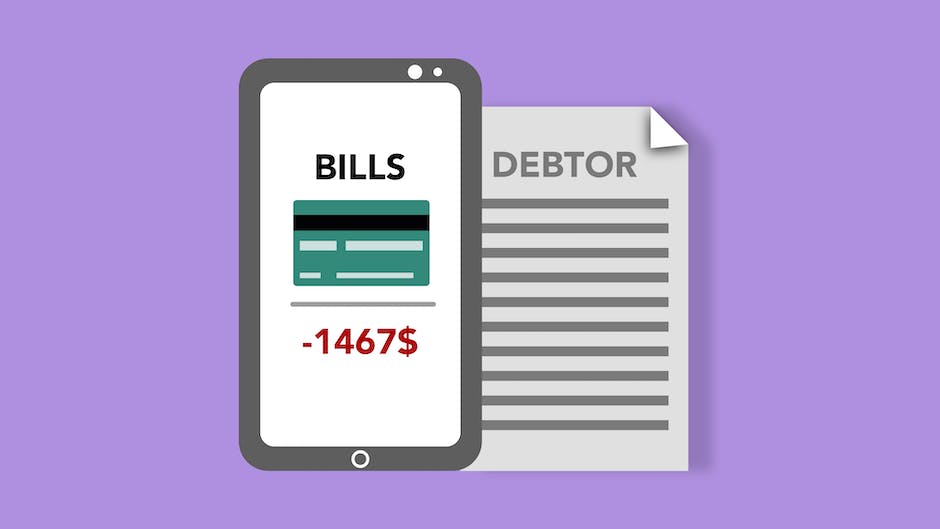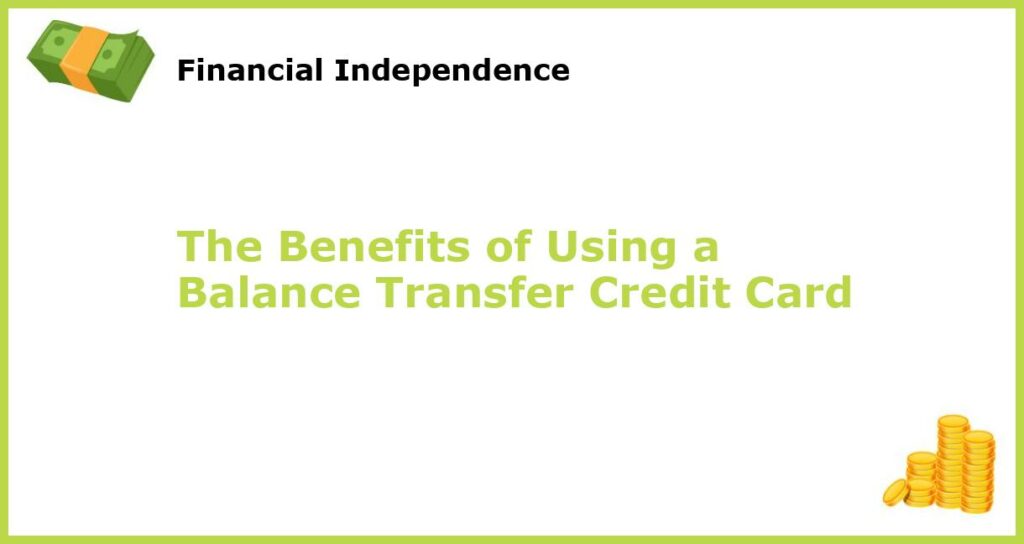Are you struggling with high-interest credit card debt? Or maybe you’re looking to simplify your finances and consolidate your debt into one easy payment? One possible solution is to consider using a balance transfer credit card. Not only can it help reduce your interest rates and lower your monthly payments, but it also comes with additional perks such as no balance transfer fees, cash-back rewards, and improved credit score, among other benefits.
1. Lower Interest Rates

One of the most significant benefits of using a balance transfer credit card is the lower interest rate. With this card, you can transfer your high-interest credit card debt to a new card with a lower interest rate or no interest at all. By doing so, you can save a significant amount of money on interest payments, which can help you pay off your debt faster. It can also reduce the overall amount you’ll pay on your debt.
Additionally, if you’re currently being charged high-interest rates on your credit cards, the balance transfer credit card can provide relief. With a lower interest rate or no interest for a certain period, you can get some breathing room in your finances while still paying off your debt.
2. Consolidate Your Debt

If you have multiple credit card debts, it can be challenging to keep track of due dates and payments. By using a balance transfer credit card, you can consolidate all your debts into one easy payment each month. This not only simplifies your finances but also gives you a better chance of paying off your debt faster since you’ll only have one payment to focus on.
Consolidating your debt can also help you stay organized, especially if you have debt from multiple sources. You can easily keep track of your debt repayment progress because it is all in one place. Additionally, since balance transfer credit cards come with lower interest rates, you’ll save money on interest payments.
3. Improved Credit Score

Using a balance transfer credit card can also help you improve your credit score. Your credit score is determined not only by how much credit you currently have available but also by the amount you are using. By consolidating your debt onto one card, you can reduce your credit utilization ratio and improve your credit score.
If you have a high credit utilization ratio, your credit score will be lower. However, by transferring your debt to a balance transfer credit card, you’ll be reducing your credit card balances while still paying your debt. Over time, as you make your payments on time, this will improve your credit score, making it easier to apply for credit in the future with better rates and favorable terms.
4. Introductory Offers

Many balance transfer credit cards offer introductory offers such as low-interest rates or even 0% APR for an extended period. This can help you pay off your debt faster without accruing additional interest charges. Take advantage of this period because it can be an ideal time to put more money towards your payments, since your payments will go directly towards your principal balance.
Don’t forget to keep track of when the introductory offer is set to expire. Once it does, it’s time to look for another balance transfer credit card that offers similar benefits and transfer your balance again. By continuing to transfer your debt, you can keep getting low-interest rates or no interest, thus significantly reducing your debt while still saving money.
5. No Balance Transfer Fee

Balance transfer fees usually range from 3-5% of the amount transferred. While this might not seem like much, it can add up, especially if you have significant debt or transfer frequently. However, some balance transfer credit cards offer no balance transfer fees, saving you money in the process.
Not having to worry about balance transfer fees can give you more flexibility in your budget. You can put the money you’d have spent on balance transfer fees towards paying off your debt, which can help you pay it off faster.
6. Cash Back Rewards

Imagine transferring your balance to a new card and getting cash back in the process. Some balance transfer credit cards offer cash-back rewards for balance transfers, which means you can earn cash back on your transferred balance. This can be a great way to save even more money or earn additional rewards.
To take advantage of these rewards, make sure to read the terms and conditions of your balance transfer credit card. Some cards may require you to transfer a certain amount to qualify for cash-back rewards, while others may have restrictions on the types of purchases eligible for cash back.
7. Additional Perks

In addition to lower interest rates and the opportunity to earn cash back rewards, balance transfer credit cards also come with additional perks such as travel rewards, purchase protection, and extended warranty on purchases, among other things. These perks can help you get more value from your spending while also improving your financial situation.
Before you choose a balance transfer credit card, do some research on the different types of cards available and compare their rewards programs. This way, you can select a card that offers the most value and benefits for your needs, both in the short and long term.
8. Lower Monthly Payments

A lower interest rate on a balance transfer credit card means lower monthly payments. By transferring your balances to a card with a lower interest rate, you’ll be able to save money each month which can be used for other financial goals.
Having lower monthly payments can also be beneficial when it comes to budgeting. Instead of worrying about meeting minimum payments on several cards each month, you’ll have one payment to focus on. This can help free up cash flow and allow you to allocate it to other areas of your budget such as savings or investments.
9. Financial Flexibility

Using a balance transfer credit card can give you more financial flexibility. With lower interest rates and lower monthly payments, you can free up money to spend on other things or even invest in yourself. This can help you achieve financial goals that may have seemed out of reach before.
Financial flexibility also means you’ll have more options when it comes to managing your money. Instead of feeling restricted by high-interest credit card debt, a balance transfer credit card can help you get on the path to financial freedom and reach your financial goals more quickly.
10. Pay Off Debt Faster
Perhaps the most significant benefit of using a balance transfer credit card is that it can help you pay off your debt faster. By reducing your interest rates, consolidating your debt, and freeing up cash flow, you can make real progress towards paying off your debt and achieving financial freedom.
Take advantage of the benefits of balance transfer credit cards, but be mindful of the potential drawbacks. Consider the fees you might incur, what type of credit score you need to qualify, and the minimum payments required, among other factors. But if you use them as a tool to help you manage your debt effectively, you can achieve your financial goals and improve your overall financial health.







